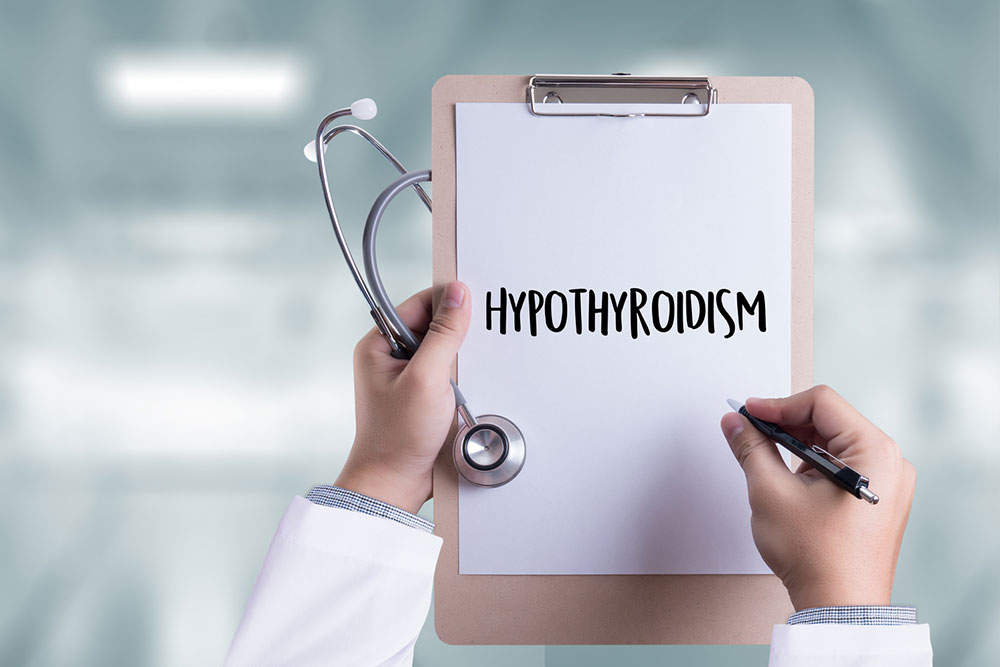Comprehensive Guide to Thyroid Health: Causes, Symptoms, and Modern Treatments
This comprehensive guide delves into the functions of the thyroid gland, explores common thyroid disorders such as hyperthyroidism, hypothyroidism, and thyroid cancer, and highlights modern treatments. Understanding thyroid health is crucial for early diagnosis and effective management of these conditions, improving overall wellbeing.

In-Depth Overview of Thyroid Function and Common Disorders
The thyroid gland, a vital butterfly-shaped organ situated just below the Adam’s apple in the front of the neck, plays a crucial role in regulating various metabolic processes throughout the body. This small but important gland encircles the windpipe and is responsible for producing and releasing hormones that influence energy levels, growth, development, and overall metabolic balance. The production of thyroid hormones is highly dependent on iodine, an essential mineral obtained from the diet, which the thyroid uses to synthesize hormones like thyroxine (T4) and triiodothyronine (T3). These hormones are fundamental to maintaining normal bodily functions.
The process of thyroid hormone regulation is complex and involves a feedback loop between the thyroid gland, the brain's hypothalamus, and the pituitary gland. When the levels of thyroid hormones in the bloodstream drop, the hypothalamus responds by releasing thyrotropin-releasing hormone (TRH). This hormone signals the pituitary gland to produce and secrete thyroid-stimulating hormone (TSH). Elevated TSH levels then stimulate the thyroid gland to produce more T4, which is subsequently converted into the active T3 hormone in the liver and other tissues. T3 and T4 hormones work to regulate the body's metabolism, temperature, heart rate, and energy consumption.
Disruptions in this delicate regulatory system commonly lead to various thyroid disorders. These disruptions may result from immune system abnormalities, tumors, iodine deficiency, or genetic predispositions. Conditions such as hyperthyroidism, hypothyroidism, goiter, and thyroid cancer can stem from these underlying issues. Recognizing the signs and understanding the causes are essential steps toward effective diagnosis and management.
The root causes of thyroid problems often involve imbalances in TSH levels, which serve as key indicators of thyroid health. Several factors contribute to these imbalances, including autoimmune responses where the immune system mistakenly attacks the thyroid tissue, the presence of tumors either benign or malignant, inadequate iodine intake, and genetic factors passed down within families.
Identifying common thyroid disorders is vital for timely intervention and management. Some of the most prevalent thyroid conditions include:
Hyperthyroidism: This condition occurs when the thyroid gland produces excessive amounts of hormones, often caused by Graves' disease—an autoimmune disorder where immune antibodies stimulate the gland uncontrollably. Other causes include thyroid nodules that overproduce hormones and toxic goiter, which is an enlarged thyroid gland that produces excess hormones. Symptoms of hyperthyroidism include rapid heartbeat, weight loss, nervousness, sweating, and irritability. The condition requires careful management to prevent complications.
Thyroiditis: An inflammation of the thyroid gland, which can cause temporary hormone fluctuations. It may lead to an initial phase of hormone excess followed by hypothyroidism as the gland becomes damaged or inflamed. Causes include autoimmune reactions, infections, or medication side effects.
Hypothyroidism: This disorder involves an underactive thyroid, resulting in insufficient hormone production. Common causes include autoimmune diseases such as Hashimoto’s thyroiditis, surgical removal of the gland, iodine deficiency, or congenital issues present at birth. Symptoms often include fatigue, weight gain, cold intolerance, depression, dry skin, and hair thinning. Managing hypothyroidism typically involves hormone replacement therapy to restore hormonal balance.
Thyroid cancers: The various types include follicular, papillary, medullary, and anaplastic thyroid cancer. These cancers can develop as a result of genetic mutations or previous exposure to radiation. Early diagnosis and treatment, which may involve surgery, radioactive iodine therapy, or targeted medications, have improved prognosis and survival rates. Importantly, the implementation of advanced treatments has significantly reduced the incidence of thyroid cancer linked to radiation exposure in recent years.
Symptoms of thyroid disorders can vary widely but often include fatigue, weight fluctuations, mood swings, skin and hair changes, and metabolic irregularities. Because the symptoms can overlap with other conditions, medical evaluation and laboratory testing are essential for accurate diagnosis. Tests such as serum TSH, free T4, T3 levels, and imaging studies help determine the specific disorder and determine the appropriate treatment plan.
In terms of treatment, healthcare providers might recommend hormone therapy, iodine supplementation, anti-thyroid medications, or radioactive iodine therapy depending on the specific condition. Surgical intervention may be necessary in cases of large goiters or cancer. Advances in medical science have made the management of thyroid diseases more effective, with options tailored to individual needs, ensuring better outcomes for patients.





